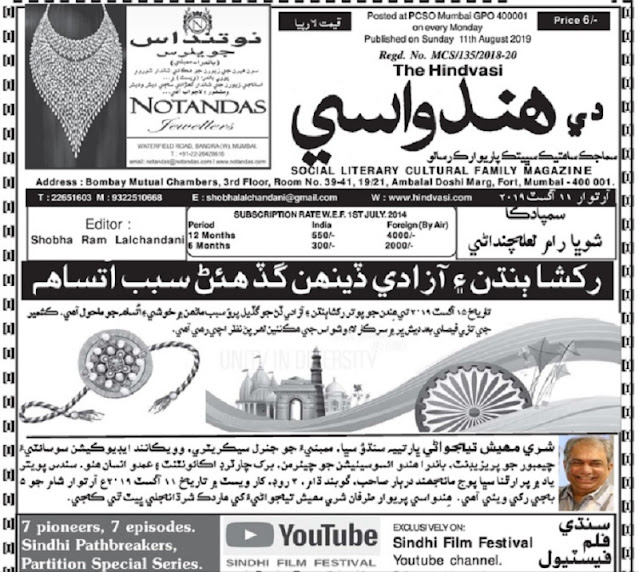Manik and Mushtaq Shoro Were literary Abused For Their Writings: Shoukat Hussain Shoro
Sindh’s legendary short story writer and dramatist Mr. Shoukat
Hussain Shoro has claimed that Manik and Mushtaq Shoro were literary abused for
their writings and were accused of polluting the minds of young Sindhis through
their stories.
This he said in an online live session under the title “Manik: His
life and work” organized by Sarangaa Publication and hosted by Dr. Ishaq
Samejo, on Wednesday evening.
Mr. Shoro said that Manik was a pure creative writer, who started
his writing career with stories influenced by social realism and nationalism
but later on became an existentialist writer. Mir Thebo was planted by
Communist Party to befriend Manik and convert him to communist ideology.
“We used to share books and also used to discuss on world classics,
like Dostoevsky’s Notes from underground, Sartre’s Nausea and Camus’ The
Stranger. Manik had more philosophical approach and he was moved by Sartre’s
Nausea, while on the other hand I enjoyed Camus’ The Stranger, and when he
asked me whether I liked Nausea or The Stranger, when I told him I was moved by
The stranger, he became silent,” Mr. Shoro said.
He further said that Manik was a very sensitive individual and was
very disturb in his last days and committed suicide.
“We used to sit at Café George of Hyderabad, in those days we were
editing a magazine named “Agtay Qadam” owned by Madad Ali Sindhi, and Manik
wrote a very hard editorial. So Mohammad Ibrahim Joyo came to Café George and
accused us of polluting the minds of young Sindhis through our writings,” Mr.
Shoro added.
Mr. Shoro claimed that they presented themselves to be angry young men
and the reason behind that was the repetition of subject in the writings of
progressive writers, while they wanted to represent the feelings and emotions
of humans.
Mr. Shoukat also said that they were moved by modernism and it was
introduced by Mushtaq Shoro in Sindhi literature. But after One-Unit ended
their dreams faded away and they were caught by disillusionment, the Sindhi
youth of that time was facing unemployment and frustration as Sindh fell in the
hands of feuds and landlords. Manik’s novel “Loohrander Nasal” portrays
that very time period.
Mr. Shoro further said that Manik’s novel “Patal Main Bagawat”
was actually reply to Camus’s Myth of Sisyphus, in which he tried to claim that
Sisyphus should revolt against the decision of taking the burden of rock on his
shoulders.




Comments
Post a Comment